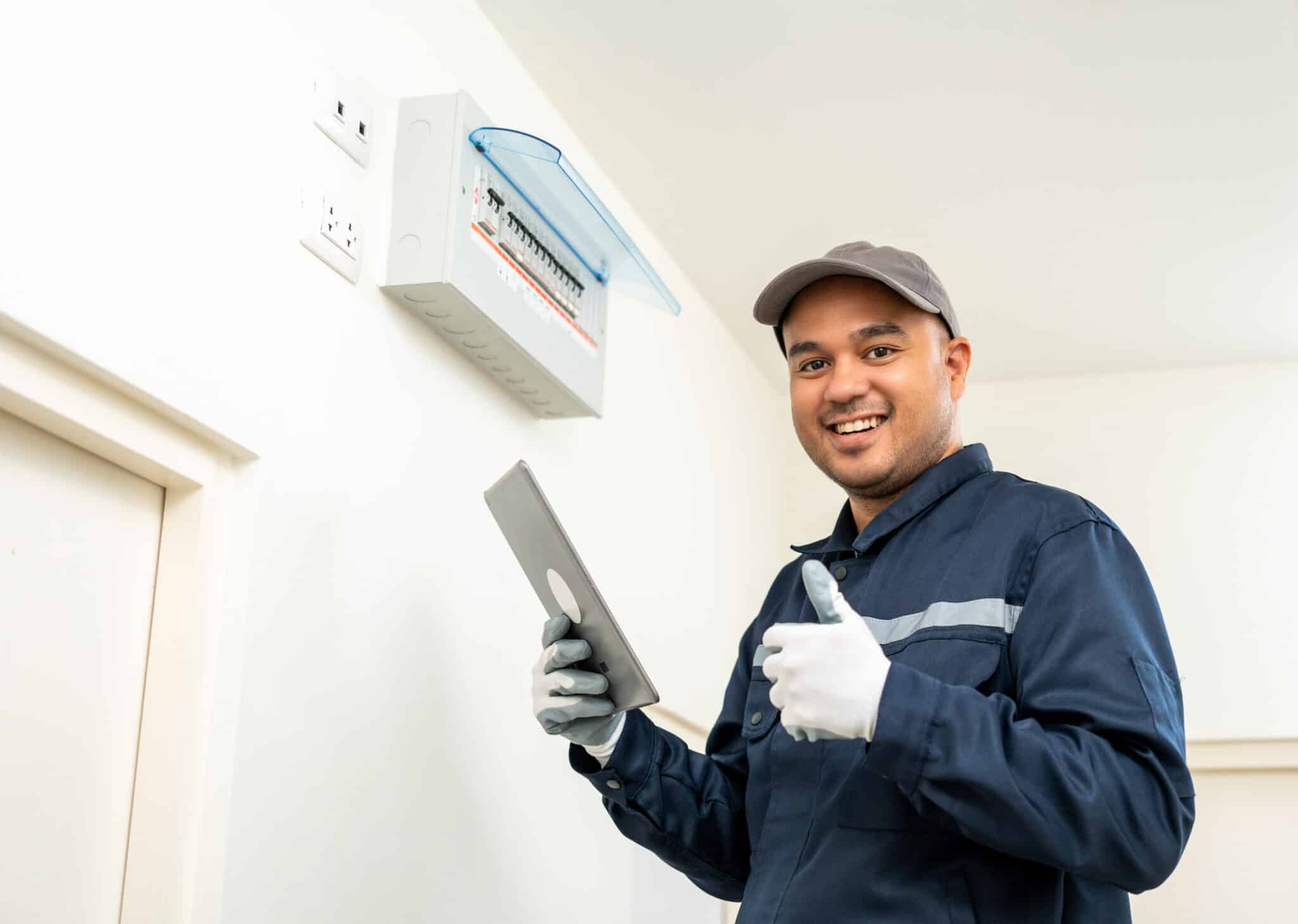Ensuring the safety of your home’s electrical system is paramount, a task that shouldn’t be overlooked. Home electrical safety audits are a proactive way to identify and address potential hazards before they escalate into serious issues. Conducting these audits can help maintain a safe environment for you and your family, preventing accidents and ensuring your home in Columbia, SC, and its surroundings operates smoothly.
In communities like Blythewood, SC, where the charm of homes is matched by their varied ages, the importance of electrical safety audits becomes even more pronounced. These checks are crucial in spotting outdated wiring, overloaded circuits, and other risks that might not be visible to the untrained eye. By taking this preventive step, homeowners can avoid the dangers that lurk within their electrical systems.
West Columbia, SC, with its beautiful landscapes and diverse architecture, also benefits from regular home electrical safety audits. These evaluations are essential in ensuring that every household’s electrical system meets current safety standards. They not only protect properties but also contribute to the overall safety of the community, making them an indispensable practice for responsible homeownership.
Understanding how to conduct a comprehensive electrical safety audit is the first step towards safeguarding your home against electrical hazards. It empowers homeowners with the knowledge to identify potential issues early on, ensuring that their homes remain safe, efficient, and well-maintained. This guide aims to equip you with the necessary information to perform thorough home electrical safety audits, ensuring peace of mind for you and your loved ones.
Understanding the Importance of Home Electrical Safety Audits
Home Electrical Safety Audits are essential for maintaining a safe and efficient living environment. When embarking on Home Electrical Safety Audits, the first step involves a thorough inspection of your electrical panel. This crucial component should be free of any signs of rust or damage, indicating a well-maintained system. In Columbia, SC, where weather conditions can vary, ensuring your panel is in top condition is essential. Regular checks as part of Home Electrical Safety Audits help prevent electrical mishaps, keeping your home safe and functional.
Next, Home Electrical Safety Audits should include a detailed examination of all outlets and switches throughout your home. Each should fit securely, with no loose parts or signs of overheating, such as discoloration. In areas like Blythewood, SC, where homes may blend modern and historic elements, it’s especially important to ensure that older outlets are updated to meet current safety standards. This step in the Home Electrical Safety Audit reduces the risk of electrical fires, safeguarding your home and family.
Another vital aspect of Home Electrical Safety Audits is testing smoke detectors and carbon monoxide alarms. These devices are your first line of defense in an emergency, so they must be in working order. Replace batteries regularly and test these systems monthly to ensure they’re operational. In West Columbia, SC, where families enjoy peace of mind in their homes, maintaining these safety devices is a key part of responsible homeownership and a key element of any Home Electrical Safety Audits.
Finally, Home Electrical Safety Audits involve assessing the condition of cords, plugs, and electrical equipment. Frayed or damaged cords pose a significant fire hazard and should be replaced immediately. Ensure that all electrical equipment is used and stored according to the manufacturer’s instructions. By taking these precautions during your Home Electrical Safety Audits, you not only protect your home in Columbia, SC, from potential electrical hazards but also extend the life of your appliances and devices, contributing to a safer, more efficient home environment.

Preparing for Your Home Electrical Safety Audits
Preparing for your home electrical safety audits begins with a detailed checklist to ensure you cover every essential aspect. Start by gathering the right tools, such as a flashlight, insulated gloves, and a notebook for recording findings. This preparation allows you to conduct your audit efficiently, minimizing the chance of overlooking any potential hazards. Having these items on hand streamlines the process, making it easier to navigate through each step of the inspection.
Next, schedule your audit at a time when you can conduct it without interruptions. This focus is crucial, as distractions can lead to missed issues that might pose significant risks. In Blythewood, SC, setting aside a quiet afternoon for your audit can help ensure a thorough examination of your home’s electrical system. A focused approach guarantees that you give each area the attention it deserves, enhancing the effectiveness of your safety checks.
Before diving into the audit, familiarize yourself with common electrical safety standards and potential hazards. This knowledge base is vital, as it equips you with the ability to identify issues that may not be immediately apparent. Residents in West Columbia, SC, can benefit from understanding local codes and regulations, ensuring their homes meet or exceed these requirements. Armed with this information, you’re better prepared to spot discrepancies and address them proactively.
Lastly, involve other household members in the audit process when possible. Educating them on what to look for and why it matters raises awareness and promotes a culture of safety within the home. This collaborative effort not only makes the audit more thorough but also reinforces the importance of electrical safety among everyone in the household. Together, you can work towards maintaining a safe living environment, free from electrical hazards.
Identifying Common Electrical Hazards in Your Home
Identifying common electrical hazards in your home during an electrical safety audit is a critical step in ensuring your living space remains safe and secure. One frequent issue is overloaded circuits, which can lead to dangerous overheating. In Blythewood, SC, checking your circuit breaker for signs of wear and ensuring it matches your home’s electrical demand can prevent potential fires. This step is essential in keeping your home’s electrical system functioning safely and efficiently.
Another hazard to watch out for is outdated wiring, which can be prevalent in older homes. In West Columbia, SC, where historical homes add to the city’s charm, it’s vital to ensure that the wiring is up to current standards. Inspecting for frayed wires or insulation that has deteriorated over time can help identify risks that might not be immediately visible but are critical to address.
Water and electricity are a dangerous combination, making areas near water sources, like kitchens and bathrooms, high-risk zones for electrical hazards. Ensuring that GFCI (Ground Fault Circuit Interrupter) outlets are installed and functioning properly in these areas can provide an extra layer of protection. These devices are designed to shut off electrical power when they detect ground faults, reducing the risk of shock.
Lastly, improper use of extension cords is a common but easily overlooked hazard. Relying on extension cords as a permanent solution rather than for temporary needs can lead to cords becoming overloaded and potentially causing a fire. Regularly checking that extension cords are not under rugs or in high-traffic areas can mitigate this risk, ensuring that your home remains a safe environment for all occupants.
How to Inspect Wiring and Electrical Panels
Inspecting wiring and electrical panels is a pivotal part of Home Electrical Safety Audits, ensuring your home’s electrical system is both efficient and safe. In Blythewood, SC, where homes range from new constructions to historic properties, it’s crucial to check for any signs of wear or damage in your wiring. Look for exposed wires, signs of rodent damage, or insulation that appears degraded. Addressing these issues promptly as part of a thorough Home Electrical Safety Audits can prevent potential hazards, keeping your home secure.
Moving on to the electrical panel, it serves as the heart of your home’s electrical system and deserves careful inspection during any Home Electrical Safety Audits. Ensure that it is not obstructed and is easily accessible in case of emergencies. In West Columbia, SC, verifying that your electrical panel is properly labeled and free from rust or damage is essential. This step not only enhances safety but also simplifies troubleshooting and maintenance tasks core objectives of a comprehensive Home Electrical Safety Audits.
During your audit, pay close attention to the capacity and condition of your electrical panel. An outdated or overloaded panel can pose significant risks, including the potential for electrical fires. Upgrading or repairing your panel as part of your Home Electrical Safety Audits ensures it can handle your home’s electrical load safely. This proactive measure is a key component of maintaining a safe and modern electrical system.
Finally, integrating the inspection of wiring and electrical panels into your regular Home Electrical Safety Audits can significantly contribute to your home’s overall safety. By identifying and addressing any issues early on, you can avoid the consequences of electrical hazards. Regular audits are an invaluable practice for ensuring that your home remains a safe haven for you and your family.
Testing GFCIs and AFCIs for Optimal Safety
Testing Ground Fault Circuit Interrupters (GFCIs) and Arc Fault Circuit Interrupters (AFCIs) is a crucial step in home electrical safety audits. These devices are designed to protect against electrical shock and fire hazards by interrupting the flow of electricity when a fault is detected. In Blythewood, SC, where homes combine modern amenities with historic charm, ensuring these safety devices are in working order is essential. Regular testing helps maintain a safe environment, preventing potential accidents before they occur.
To test a GFCI, simply press the “test” button on the outlet and then the “reset” button to restore power. This should be done monthly to ensure they are functional. In West Columbia, SC, where families rely on the safety of their homes, this simple step can provide peace of mind. It’s a quick and effective way to check that your GFCIs are ready to protect your home and loved ones.
AFCIs, on the other hand, are designed to detect and protect against electrical arcs that can lead to fires. Testing these involves locating your electrical panel and flipping the AFCI breaker to the “test” position, then back on. This action simulates an arc fault, ensuring the breaker properly shuts off power when needed. It’s a proactive measure that significantly enhances the safety of your home’s electrical system.
Incorporating the testing of GFCIs and AFCIs into your routine home electrical safety audits is a smart move. It not only ensures that these critical safety devices are operational but also helps identify any potential issues early on. By taking this step, homeowners in Columbia, SC, and its surroundings can enjoy a safer living environment, knowing they are protected against common electrical hazards.
The Role of Professional Electricians in Electrical Safety Audits
While conducting home electrical safety audits is a proactive step homeowners can take, the expertise of professional electricians plays a pivotal role in ensuring the thoroughness and effectiveness of these audits. Professionals bring a depth of knowledge and experience that allows them to identify issues homeowners might overlook. In Blythewood, SC, where the charm of historic homes is juxtaposed with modern electrical demands, a professional electrician can assess whether the electrical system meets current safety standards and suggest necessary upgrades or repairs.
In addition to their expertise, professional electricians have access to specialized tools and equipment that enhance the accuracy of home electrical safety audits. These tools enable them to perform detailed inspections of wiring, circuits, and electrical panels, ensuring a comprehensive audit is conducted. For homeowners in West Columbia, SC, hiring a professional means gaining insights into the intricacies of their home’s electrical system, which might not be possible through a DIY approach.
Professional electricians also provide valuable guidance on maintaining electrical safety and preventing potential hazards. After an audit, they can offer tailored advice on how to address identified issues, prioritize repairs, and maintain the system to prevent future problems. This guidance is crucial for homeowners looking to ensure their homes remain safe and compliant with electrical codes and standards.
Lastly, the involvement of professional electricians in home electrical safety audits can significantly enhance peace of mind for homeowners. Knowing that an experienced professional has thoroughly checked the electrical system and confirmed its safety can alleviate concerns about potential hazards. For residents of Columbia, SC, and its surroundings, this assurance is invaluable, contributing to a safer, more secure living environment.
Implementing Electrical Safety Measures and Fixes
After identifying potential hazards through home electrical safety audits, taking corrective actions is crucial for maintaining a safe environment. In Blythewood, SC, homeowners can start by updating or replacing outdated wiring systems that pose a risk. This step not only enhances safety but also adapts your home to handle modern electrical loads more efficiently. It’s a proactive measure that significantly reduces the risk of electrical fires and other hazards.
Implementing proper GFCI outlets in areas prone to moisture, such as kitchens and bathrooms, is another essential safety measure. These devices are designed to prevent electric shock by breaking the circuit when they detect ground faults. In West Columbia, SC, ensuring that GFCI outlets are installed and functioning correctly can provide an extra layer of protection for you and your family. Regular testing of these outlets is also recommended to ensure ongoing safety.
For homes with children, securing outlets with safety covers is a simple yet effective way to prevent accidental shocks. This action is particularly important in areas where small children frequently play or explore. It’s an easy fix that adds a significant safety barrier, safeguarding against potential injuries. Additionally, organizing cords and keeping them out of reach helps minimize the risk of tripping or electrical hazards.
Lastly, scheduling regular follow-up audits is key to ensuring long-term electrical safety. These audits allow homeowners to stay ahead of potential issues, ensuring their electrical systems remain up to standard. It’s a practice that not only keeps your home safe but also contributes to the well-being of the entire community. By taking these steps, residents can enjoy a safer, more secure home environment.
Maintaining Electrical Safety Post-Audit
Maintaining your home’s electrical safety after conducting an audit is a continuous process that requires attention and action. In Blythewood, SC, residents should prioritize addressing any issues identified during their home electrical safety audits immediately. This approach prevents minor problems from becoming major hazards, ensuring a safer living environment for everyone. Regularly updating and repairing your electrical system contributes to its efficiency and safety, making your home a secure place for your family.
In West Columbia, SC, implementing a schedule for routine checks and maintenance of your electrical system is a practical step following an audit. This practice helps homeowners stay on top of any changes or emerging issues before they escalate. By keeping a detailed record of all inspections and repairs, you can track the health of your electrical system over time. Such diligence ensures that your home remains compliant with safety standards, offering peace of mind.
Educating yourself and your household members about electrical safety is also crucial. Knowledge empowers individuals to recognize potential hazards and understand the importance of immediate action. Whether it’s learning how to properly use and store electrical devices or knowing when to call a professional, informed decisions can significantly reduce the risk of electrical accidents. This collective awareness fosters a culture of safety within the home, ensuring that all occupants contribute to maintaining a secure environment.
Finally, establishing a relationship with a trusted local electrician can be invaluable. A professional can offer expert advice, conduct detailed inspections, and perform necessary repairs, ensuring your home’s electrical system is in top condition. Their expertise provides an additional layer of security, ensuring that your home in Columbia, SC, and its surroundings remains safe from electrical hazards. By taking these steps, homeowners can effectively maintain electrical safety, protecting their homes and loved ones.

Frequently Asked Questions
What is a home electrical safety audits?
A home electrical safety audits is a thorough inspection of your home’s electrical system. It identifies any potential hazards or issues that could lead to problems. During the audit, professionals examine wiring, outlets, and electrical panels. This process ensures your home meets current safety standards and keeps your family safe.
How often should I conduct Home Electrical Safety Audits?
It’s best to schedule home electrical safety audits at least once every year. This regular check-up can catch issues before they become serious problems. If you’ve done renovations or added new appliances, consider an additional audit. Keeping your home safe is easier with these timely inspections.
What tools are needed for a safety audits?
To conduct a home electrical safety audits, a few key tools are necessary. A voltage tester helps check for live wires and electrical flow. Insulation resistance testers evaluate the condition of wires and cables. For checking ground fault circuit interrupters, a GFCI tester is essential. Lastly, a flashlight illuminates dark spaces, ensuring no detail is missed.
Can I perform the audit myself?
While you can perform a basic audit yourself, it’s wise to hire a professional for a comprehensive home electrical safety audits. Experts from Mister Sparky have the training to spot issues you might miss. They also ensure your audit meets all current safety standards. Trusting a pro helps keep your home and family safe.
What are common electrical hazards?
Common electrical hazards include overloaded circuits, frayed wires, and unsecured outlets. These can lead to fires or electric shocks if not addressed. Water near electrical devices also poses a significant risk. Regular home electrical safety audits help identify and fix these dangers, keeping your home safe.




